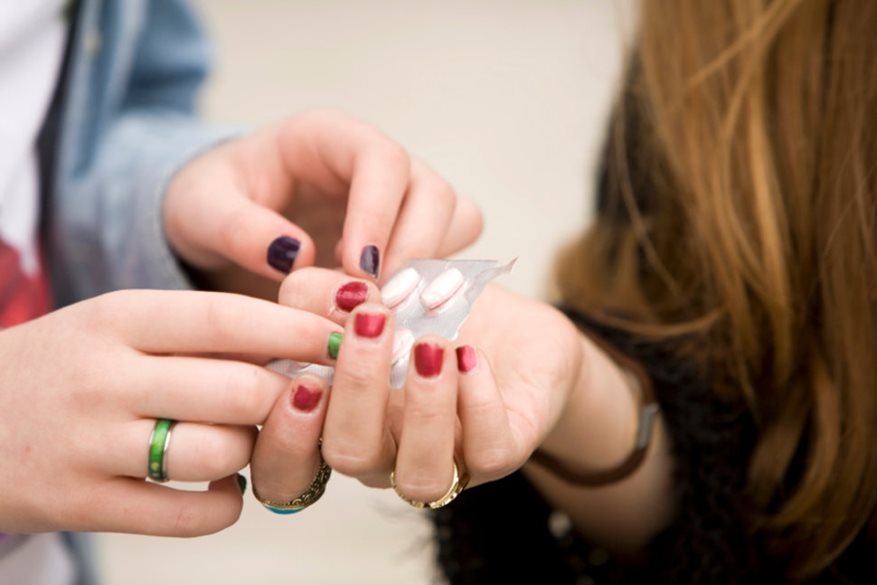Why It’s Risky for College Kids to Take ADHD Meds to Help Them Study


Students are looking for ways to boost their focus, but ethical, legal and health risks are involved.
College students taking more than the suggested dose of ADHD medication develop high levels of dopamine, which can mimic schizophrenic symptoms. (Getty Stock)
Many college students are taking stimulant medications designed to help manage attention deficit hyperactivity disorder symptoms – focus in particular – not because they actually have ADHD, but because these meds are a perceived bonus for the busy student hoping to ace tests and breeze through study sessions.
Thomas E. Brown, director of the Brown Clinic for Attention and Related Disorders in Manhattan Beach, California, says a common reason students do this is because they’ve procrastinated and may need to pull all-nighters. He says kids who don’t have ADHD usually borrow or buy these medications from friends. Also known as “study drugs,” “smart drugs” and “cognitive enhancers,” experts maintain that their misuse isn’t showing signs of slowing.
One study, published in the March 2015 Clinical Child and Family Psychology Review, states that “the misuse of stimulant medication among college students is a prevalent and growing problem” ultimately finding that “the rate of stimulant medication misuse among college students was estimated at 17 percent.”
The following year, NBC News reported on students who spoke candidly about taking ADHD meds to help with their studies, stating that it’s becoming a widespread habit occurring in most social circles. The segment even touched on the fact that some student organizations seem to advocate the benefits of taking ADHD medications; the University of Miami’s student newspaper published an opinion piece in 2012 justifying Adderall – or “Sir Adderall” as the author put it – noting that “Adderall is indeed a solution” for students to “boost their drive.”
According to Marcia Lee Taylor, president and CEO of the Partnership for Drug-Free Kids, such endorsement is an unfortunate sign of the times. “It’s symptomatic of a larger problem in society in which teens and young adults haven’t learned how to cope effectively,” she says, adding that rather than thinking, “What can I take to handle stress?” young adults should instead ask themselves, “What can I do to manage my stress in a healthy way?”
Addiction Risks
“The risk profile in this case is different than with opioids,” says Taylor, who adds that while opioids often understandably draw a great deal of public attention, it’s necessary for parents to be just as aware that prescription stimulant abuse is widespread and “growing in the 12- to 17-year-old population.”
RELATED CONTENT
What Are the Primary Ways That ADHD Is Treated?
Taylor explains that people who abuse ADHD stimulants may also turn to other drugs to offset the effects of ADHD medications. For example, she says that prescription stimulants may make it harder to fall asleep, so a college student could turn to Valium: “If they do this long enough, it can turn into a roller coaster where they experience high highs and low lows.”
“If someone is using another substance to counter the effects of another,” says Stephanie Sarkis, an author and psychotherapist located in Tampa, Florida, “that’s a tipoff that addiction may be underway.”
“A large part of the risk in this case is that someone is taking a highly controlled, addictive substance prescribed for an illness that’s not diagnosed – that may only temporarily improve concentration – without the oversight from a medical professional,” adds Dr. Stuart Gitlow, past president of the American Society of Addiction Medicine.
Charlotte Lieberman, a 2013 Harvard University graduate and a Brooklyn-based freelance writer who does not have ADHD, says she took Adderall prior to her junior year for a couple of weeks at a time, usually obtaining them from friends who had prescriptions. However, she says the ongoing desire to “feel more high-functioning” in the face of her own self-imposed pressures as a “type-A student incredibly devoted to academics,” caused her to continue the habit – but with much more frequency – throughout her entire junior year.
That year, she regularly took 80 milligrams of Adderall, a significant departure from the 10 milligrams “as needed” per day that was recommended by Harvard Health Services, where she says she received a prescription despite the fact that she didn’t have ADHD. “I went in with the argument that I probably had attention deficit issues and needed Adderall,” she admits, noting the ease with which a person without the disorder can obtain and take stimulant medications.
Gitlow explains that addiction or serious health consequences are unlikely to occur with occasional use. “But the flip side of the coin,” he says, “is that a person may end up doing this more and more.”
Ethical and Legal Risks
The journal Neurology states that “ethical, social, legal, and developmental issues” are involved when it comes to neuroenhancement prescriptions.
Brown, who is also the author of “Outside the Box: Rethinking ADD/ADHD in Children and Adults: A Practical Guide,” says that ethics are a concern. He says the drugs should only be prescribed and taken for their intended use, noting that addiction could occur when “a lot is used and for a long time.”

